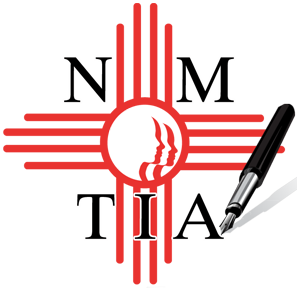
Here are a few references that we’ve compiled over the years—mostly helpful to translators and interpreters, but may also be helpful to those who are interested in learning more about how to best utilize these professional services.
For recent updates from our organization, visit the NMTIA news page.
NMTIA members can also join our Facebook group.
Articles of interest
How U.S. Immigration Judges Battle Their Own Prejudices
Medical interpreting: Preventing Vital Health Care Information from Getting Lost in Translation
Washington Post: “Zoom fatigue”
Small study tracks physiological effects of ‘Zoom fatigue’ – The Washington Post 11/25/23, 6:39 AM
‘Zoom fatigue’ may take toll
on the brain and the heart,
researchers say
Videoconference participants in a small study reported feeling tired, drowsy and ‘fed up,’ and testing revealed brain wave data backing that up
By Erin Blakemore
November 25, 2023 at 6:00 a.m. EST
Does a session on Zoom, FaceTime or Microsoft Teams leave you drained and listless?
You’re not the only one: Since videoconferencing skyrocketed in popularity with the early days of the pandemic, use of such technology has soared. So have anecdotal accounts of a phenomenon some call “Zoom fatigue” — a unique state of exhaustion reported by those who feel wrung out after video calls.
A recent brain-monitoring study supports the phenomenon, finding a connection between videoconferencing in educational settings and physical symptoms linked to fatigue.
The study, published in the journal Scientific Reports, looked for physiological signs of fatigue in 35 students attending lectures on engineering at an Austrian university. Half of the class attended the 50-minute lecture via videoconference in a nearby lab and a face-to-face lecture the following week, while the other half attended first in person, then online.
https://www.washingtonpost.com/health/2023/11/25/zoom-fatigue-brain-heart-effects/ Page 1 of 3
Small study tracks physiological effects of ‘Zoom fatigue’ – The Washington Post 11/25/23, 6:39 AM
Participants were monitored with electroencephalogram (EEG) and electrocardiogram (ECG) instruments that recorded electrical activity in the brain and their heart rhythms. They also participated in surveys about their mood and fatigue levels.
The researchers searched for physical changes correlated with mental fatigue, including distinctive brain waves, reduced heart rate and hints the nervous system might be trying to compensate for growing exhaustion during the lecture.
There were “notable” differences between the in-person and online groups, the researchers write. Video participants’ fatigue mounted over the course of the session, and their brain states showed they were struggling to pay attention. The groups’ moods varied, too, with in-person participants reporting they felt livelier, happier and more active, and online participants saying they felt tired, drowsy and “fed up.”
Overall, the researchers write, the study offers evidence of the physical toll of videoconferencing and suggests that it “should be considered as a complement to face-to-face interaction, but not as a substitute.”
They say the research should be replicated in business settings and homes to get a more accurate sense of how such sessions affect participants, calling for further studies that include more portions of the brain and a broader participant base.
The research was conducted as part of “Technostress in Organizations,” an Austrian-funded project devoted to collecting hard evidence about how technology affects human bodies and brains. Other studies published over the course of the project covered “digital detoxes,” workplace interruptions and social network use.
https://www.washingtonpost.com/health/2023/11/25/zoom-fatigue-brain-heart-effects/ Page 2 of 3
Small study tracks physiological effects of ‘Zoom fatigue’ – The Washington Post 11/25/23, 6:39 AM
https://www.washingtonpost.com/health/2023/11/25/zoom-fatigue-brain-heart-effects/ Page 3 of 3
A few translation resources
Accurapid Translation Journal, has a great compendium of resources
One Look General Dictionary Sites
Other resources for language professionals
American Translators Association (ATA)
Austin Area Translators & Interpreters Association (AATIA)
Colorado Association of Professional Interpreters (CAPI)
Colorado Translators Association (CTA)
El Paso Interpreters & Translators Association (EPITA)
Metroplex Interpreters and Translators Association (MITA)
National Association of Judiciary Interpreters and Translators (NAJIT)
National Capital Area Chapter of ATA (NCATA)
